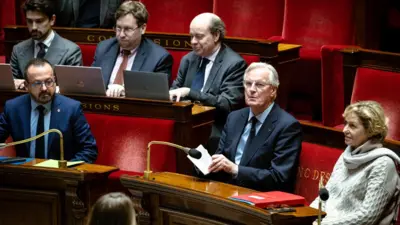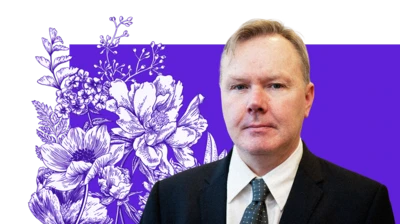We've updated our Privacy and Cookies Policy
We've made some important changes to our Privacy and Cookies Policy and we want you to know what this means for you and your data.
Extradition laws are 'fair', US ambassador tells MPs
The US ambassador to the UK has told MPs the extradition treaty between the two countries works well.
Louis Susman told the Commons Foreign Affairs Committee it was "fair and balanced" and "promotes the interests of justice" in both countries.
His comments follow high-profile cases, including that of Gary McKinnon, the alleged hacker who has been fighting extradition to the US for years.
The meeting came ahead of a Commons debate on the controversial issue.
In unusually strong language for a diplomat, the ambassador attacked those who believe the treaty is biased in favour of the US.
"The constant use of skewed arguments and wilful distortion of the facts by some to advance their own agendas remains of great concern to the United States," he said.
"It would be wrong to view the extradition treaty through the prism of individual cases where sentiment and emotion can cloud reality and lead to misrepresentation."
The treaty was being "widely and wrongly condemned" by "some in parliament and in sections of the British media", he said.
The Tory chairman of the committee, Richard Ottaway, said it was clear the ambassador felt very strongly about the treaty.
"The tone of his comments is understandable given the gravity of the situation as he sees it and his level of concern," he said.
"He is concerned that attempts may be made to renegotiate a treaty which he believes is working well."
An independent review of the treaty led by the former Court of Appeal judge Sir Scott Baker found it "does not operate in an unbalanced manner", he added.
Louis Susman said: "I believe that having signed the treaty, and having had it tested both through the British justice system and by independent experts, it is now incumbent on the UK government to stand in support of it."
The review "reached the only conclusion that could be supported by the facts: that the US-UK treaty is balanced, fair, and needs no changes".
'Urgently renegotiate'
Critics of the US/UK treaty, agreed between Washington and London in the aftermath of the 9/11 attacks of 2001, say it is easier to extradite people from the UK than the US.
They say the arrangement is not reciprocal because the US does not need to present evidence to a British court to request extradition, while the UK still needs to present evidence to an American court.
The treaty was originally designed to make it easier to bring terrorist suspects to justice but campaigners say it is being used to seek extradition for other offences such as fraud and drug trafficking.
Nine cases, including those of Abu Hamza and Babar Ahmed, are still awaiting rulings, including two which involve allegations dating back to 1997.
Parliament's Joint Committee on Human Rights criticised those delays.
"Delays of this kind are, in our view, unacceptable; they are unfair to the individual and militate against the prospects of a fair trial," the report said.
Figures released in the report show between January 2004 and July 2011, there were 130 requests by the US for people to be extradited from the UK, compared with 54 requests from the UK to the US.
But Louis Susman says it is not the case, as some claim, that it is easier to extradite someone from the UK than from the US.
"The United States has never denied an extradition request from the UK under the treaty," he said.
"The UK has refused on seven occasions.
"Second, the standard that each country has to meet to extradite someone is the same.
"I would like to repeat that: the standard is the same."
UK-US extradition will be debated in the House of Commons on Monday afternoon.
The backbench debate - put forward by 45 MPs - calls on the treaty to be "urgently renegotiated" to enable the government to refuse extradition requests if UK prosecutors have decided against beginning proceedings at home.
Top Stories
More to explore
Most read
Content is not available








